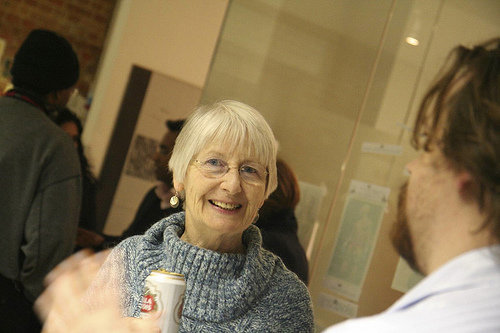The glorious truth is that people think and learn differently. Some people like words, but not pictures, some like movements rather than sounds. Why are people different? Who knows, perhaps because Allah loves wondrous variety.

A funny thing is that we have the tendency to ignore this fact. Perhaps because empathy is difficult, perhaps because learning makes itself invisible. I have a dear friend, Cat, who doesn't have visual imagery. When she thinks of a dog, for example, she doesn't see one in her mind's eye. She doesn't see anything. When she dreams she rarely has pictures --- she just knows what is happening in the dream. People often don't believe this. They think that everyone must experience their inner world in pictures, the way they do. Sorry. People are just different. Some always see things when they imagine them, some don't. Some people have a sense of pitch, some don't. So it goes.
So the idea of learning styles makes a lot of intuitive sense. Surely if we know that people think and learn differently, we should be able to design our teaching to take advantage of different learning styles. Right?
This is where we hit problems. Are learners either primarily visual, auditory, kinesthetic (as claimed in NLP)? Or are they primarily analytic, creative or pragmatic (as proposed by Robert Sternberg). Is the world made of Convergers, Divergers, Assimilators and Accomodators? Maybe instead we should use the Myers-Briggs categories of Sensers, Intuitors, Thinkers and Feelers?
Faced with these possibilities an academic psychologist has a standard set of questions they would like answered: can you really divide people up into a particular set of categories? Are the tests for these categories reliable; if you take the test twice will you come out the same both times? Are the categories you are trying to use related to how people learn? If you use a theory of learning styles, do people learn better? Can you use learning styles to predict who will benefit most from particular styles of instruction? Does using a learning styles system - any system - for teaching have other effects on learners or teachings, such as making them more confident or making them expend more effort?
These questions stem from the way academic psychologists systematically approach topics: we like to establish the truth of psychological claims. If someone comes to us with a theory about learning styles we want to know (a) if learning styles really exist, (b) if they really are associated with better learning and also (c) if, when learning styles are taken into account, learning is better because of something about the specific learing style theory rather than just being a side effect of an increase in teacher confidence, effort or somesuch.
So, what have academic psychologists found out about learning styles? We know that some of the supposed categories of learning styles are actually dimensions that vary continuously across the population. For example visual imagery: it is not that some people are visual thinkers, it is that most people have some visual imagery and a few have very strong imagery and a few, like my friend Cat, have less than average. We also know that people can change their learning styles over time, for different tasks and in different contexts. We also know that it is very difficult to prove that teaching that uses learning styles is better because of the particular theory of learning styles used, rather than merely because a learning style theory, any learning style theory, is being used and this makes people pay more attention to what they are doing.
Learning styles seem intuitively sensible. Having thought about learning styles helps teachers improve their teaching and also helps increase their confidence and motivation. But there is no strong evidence that any one theory of learning styles is the best, or most true, compared to the others. Learning style theories can be useful without being true, and it isn't clear that knowing the truth about the differences in how people learn will be immediately useful or produce a more useful theory of learning styles. This difference between truth and utility is a typical dilemma of psychology.
Sadly, the headlines for this conclusion aren't snappy. It is easier to say that "Some people are visual thinkers and others are auditory thinkers" than it is to say that "Thinking about presenting information in different sensory modalities will make your teaching more varied and help those you are teaching who have different preferences to yourself". Using a learning style theory is great, but you lose a lot of flexibility and potential for change if you start to believe that the theory is based on proven facts about the way the world is, rather than just being a useful set of habits and suggestions which might, sometimes, help guide us through the maze of teaching and learning.
Part of a series:
Image: jelly belly by House of Sims



